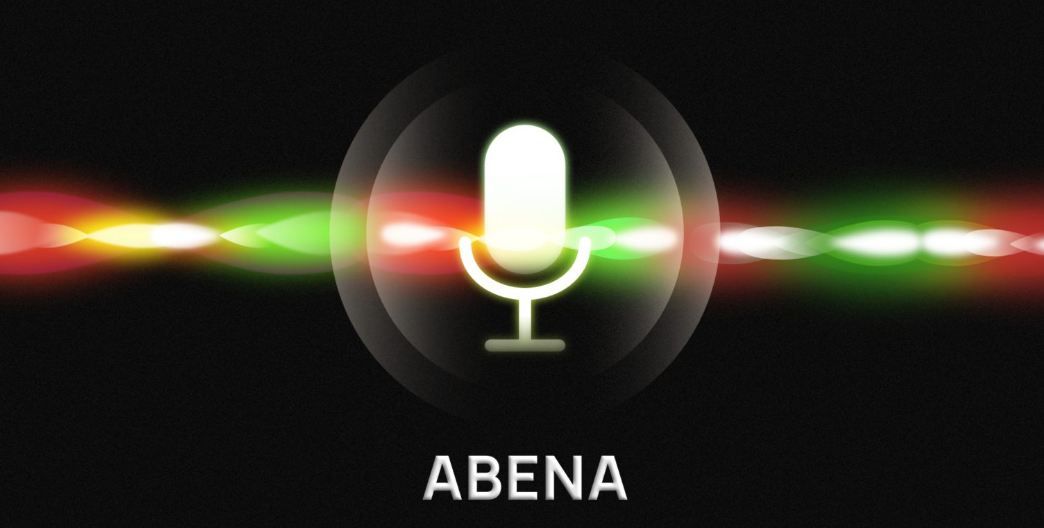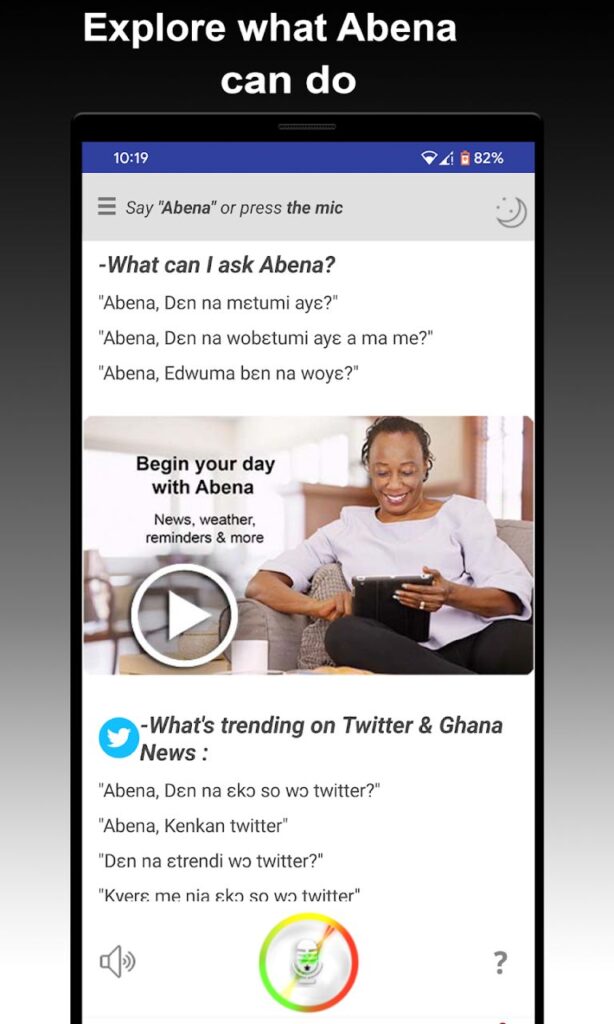Born in Africa and for Africans. Abena is the Real African Voice Assistant AI

Voice assistant technologies are making life easier and more enjoyable in and out of our homes. Having Alexa, Siri, or Google in your home can feel like having an attentive PA. She is never too busy and reacts to your every desire with a cheerful attitude. Unfortunately, that is not the case, but why do they always have female names?
We almost do not need to lift a finger to operate a smartphone. Asking questions about the weather, setting bedtime alarms, and increasing music volume on command, all with the power of your voice, are becoming a norm. What tech has achieved is remarkable; increasingly relying on this command technology while driving or cooking is outstanding.
When considering variables like better natural speech and smoother personal interactions, voice assistant techs have excluded Africa. This is because voice technologies have only supported Western languages and are unavailable in African languages. However, Ghanaian innovator, Nana Ghartey, is changing this narrative through Abena.
About Abena
Abena is primarily a female name of African – Akan of West African origin that means Born On Tuesday. Nana Ghartey developed Abena and launched the tech in April. Abena is the first African voice assistants AI.
Ghartey speaking to TechCabal credited the needs of his grandmother and his early exposure to computers as inspiration and catalysts. He said he initially created Kofi, a Fante voice AI, to help his grandmother.

Ghartey had built Kofi specifically for this grandmother, using his voice and his sister’s. Due to her impaired vision, the solution allowed her to access mobile apps without browsing the home page, which was challenging for her. To start the Kofi app, she tapped the edge of the button, and she could immediately receive news updates, listen to music, listen to radio programs, and follow Twitter trends.
Ghartey spent six years building Abena AI and released it in the Google Play Store this April. Users can use voice commands to monitor trending news on Twitter, follow weather reports, check, transfer, recharge their airtime balances, and transfer money with their preferred mobile payment app. In addition to text messages, photographs, and videos, the offline mode offers an in-app community feature that allows users to communicate with one another via text messages, images, and videos.
Abena’s offline operation was also a cost-cutting measure on Ghartey’s part. He noted that users would not need to purchase data to use the app constantly. According to Ghartey, the region is characterized by patchy and inconsistent internet connection, so this feature is essential.
"Abena AI" is a hands-free voice assistant for Ghanaian languages… a.k.a Twi Siri. Developed by a Ghanaian.
It works without internet service. pic.twitter.com/i3M6xEwfbW
— Silas Joy, M.D.⚕️ (@officialsilasMD) April 9, 2022
A health influencer published a demo of Abena on Twitter just a few days after it launched. This catapulted it into a trending topic.
The Ouut’s Take
Ghartey plans to release an update that will add support for five more Ghanaian languages soon. He will also hire professional natural language processing (NLP) and machine learning engineers. The app will also include updates to other African languages such as Swahili, Kinyarwanda, Afrikaans, Sesotho, and isiZulu.
However, measures must be implemented to ensure this app stays and make Abena the African brand. Despite data requirements by Alexa, Siri, and Google, more Africans will still prefer them as they have become familiar with these apps.
Preinstalling the Abena app in phones sent to Africa can help amplify the use of the authentic African voice assistant app. In addition, preinstalling foreign apps contributed to the growth and increased familiarization of these apps.
